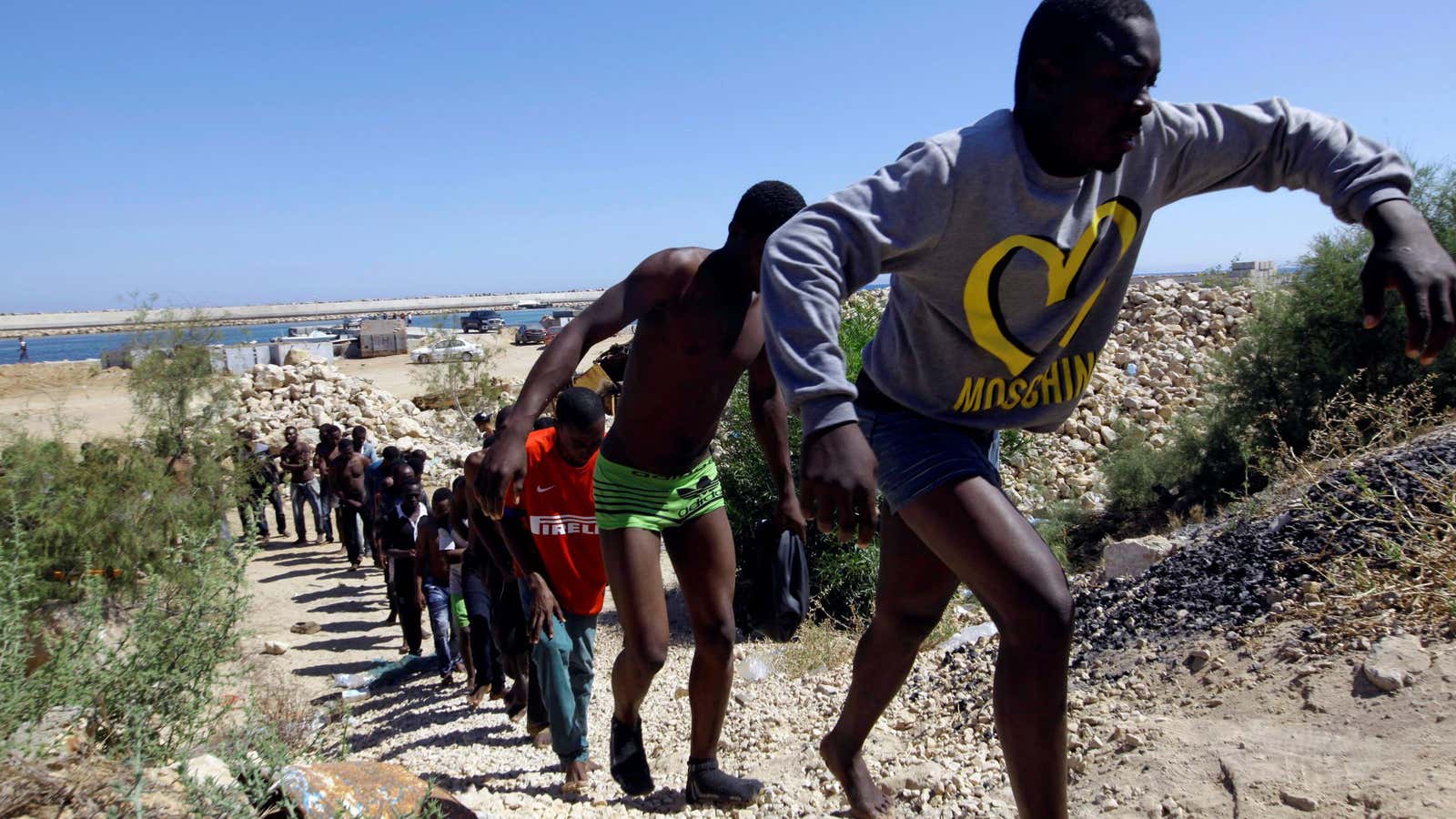Denmark is pledging 91 million Danish kroner ($14 million) to curb the “human and social costs” of unwanted pregnancies in places with poor infrastructure and opportunities for young women. Much of the focus will be on Africa’s least developed countries.
Danish minister for development cooperation, Ulla Tørnæs, said, “part of the solution to reducing migratory pressures on Europe is to reduce the very high population growth in many African countries.”
The framing of contraception aid as an act of foreign policy reflects a change in attitudes towards refugees and migrants in the Scandinavian country. In August 2015, the government passed legislation to cut welfare benefits to refugees and migrants residing in the country for less than eight years. And in January 2016, Danish parliament approved plans to allow police to seize the refugee assets worth more than $436.
Over a million migrants and refugees reached Europe by sea in 2015, with nearly 4,000 reported missing, or suspected to have drowned, according to the UN Refugee Agency.
The UN high commissioner for refugees, Filippo Grandi, said the move was a ”deeply concerning response to humanitarian needs” and ”an affront to their dignity.” In an 18-page report, Grandi also wrote that Denmark’s proposed immigration policies were out of touch with its “tradition of providing sanctuary to those in need.”
Tørnæs’s comments follow French president Emmanuel Macron’s diagnosis of Africa’s problems as “civilizational” , saying one of Africa’s “essential challenges” was population growth, and noting that “in some countries…seven or right children [are] born to each woman.” However, the 2017 Revision of the UN World Population Prospects tells a different story. Fertility rates for Africa were recorded at 4.7 births per woman for 2010-2015. The only country in Africa, let alone the world, that resembles Macron’s statistic is Niger.
While global fertility rates are set to fall, the UN anticipates a rapid increase in the population of 33 African countries categorized as “least developed nations.” These nations are expected to triple in size between 2017 and 2100.
Like Denmark, Germany has received high numbers of refugees coming to its borders since the crisis in 2015. Chancellor Angela Merkel was criticized by opposition leaders over her open door policy towards refugees and migrants in 2016. But on July 17, Merkel said she wouldn’t set an upper limit on refugees in a live interview on German TV.
